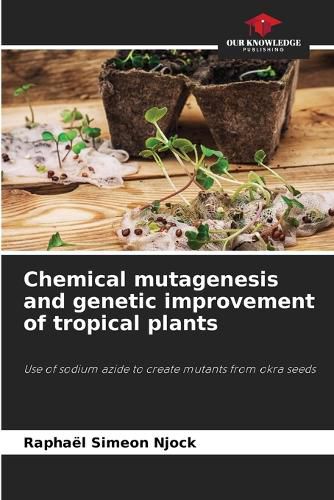Readings Newsletter
Become a Readings Member to make your shopping experience even easier.
Sign in or sign up for free!
You’re not far away from qualifying for FREE standard shipping within Australia
You’ve qualified for FREE standard shipping within Australia
The cart is loading…






The application of chemical mutagens has proved highly successful. The use of these is an effective means of creating genetic variations resulting in new individuals with improved characteristics. The resulting characteristics can be morphological, physiological, molecular or biochemical. Thus, the induction of mutations from plant seeds using sodium azide (SA) is currently emerging as a significant alternative for the creation of interesting traits. In view of the satisfactory improvements observed in its use on other plants, and the limited literature on its impact on improving the phytochemical response of Abelmoschus esculentus, whose nutritional and medicinal importance no longer needs to be demonstrated, the present manuscript aims to make a twofold contribution. The first is a review of the effective use of AS, and the second is a practical study of trials to improve phytochemical attributes using this mutagen, on three varieties of okra grown in Cameroon.
$9.00 standard shipping within Australia
FREE standard shipping within Australia for orders over $100.00
Express & International shipping calculated at checkout
The application of chemical mutagens has proved highly successful. The use of these is an effective means of creating genetic variations resulting in new individuals with improved characteristics. The resulting characteristics can be morphological, physiological, molecular or biochemical. Thus, the induction of mutations from plant seeds using sodium azide (SA) is currently emerging as a significant alternative for the creation of interesting traits. In view of the satisfactory improvements observed in its use on other plants, and the limited literature on its impact on improving the phytochemical response of Abelmoschus esculentus, whose nutritional and medicinal importance no longer needs to be demonstrated, the present manuscript aims to make a twofold contribution. The first is a review of the effective use of AS, and the second is a practical study of trials to improve phytochemical attributes using this mutagen, on three varieties of okra grown in Cameroon.